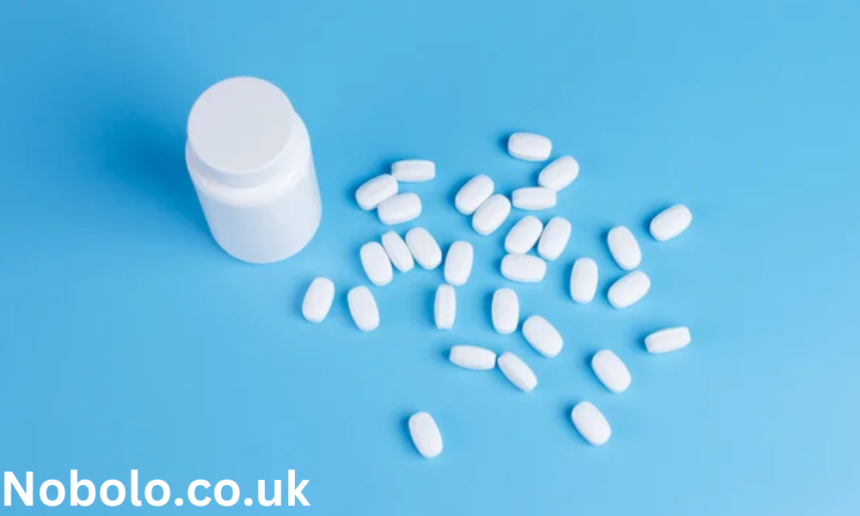Type 2 diabetes is a chronic condition that affects millions of people worldwide. Managing blood sugar levels is essential to prevent long-term complications such as heart disease, nerve damage, and kidney failure. Fortunately, there are several medications available to help control blood glucose levels. Two popular medications in the treatment of type 2 diabetes are Metformin and Rybelsus. This article will provide an in-depth comparison of Metformin vs Rybelsus, exploring their mechanisms of action, side effects, effectiveness, and more.
Understanding Type 2 Diabetes and Its Treatment
Before diving into the comparison between Metformin vs Rybelsus, it is essential to understand the basics of type 2 diabetes and the role of medication in managing the condition.
What Is Type 2 Diabetes?
Type 2 diabetes is a metabolic disorder characterized by high blood sugar levels. Unlike people with type 1 diabetes, individuals with type 2 diabetes still produce insulin, but their bodies do not respond to it effectively, a condition known as insulin resistance. Over time, the pancreas may also produce less insulin, contributing to elevated blood sugar levels.
The primary goals in managing type 2 diabetes include:
- Reducing blood sugar levels to a safe range
- Improving insulin sensitivity
- Preventing complications like cardiovascular disease, neuropathy, and kidney damage
Medications like Metformin and Rybelsus are prescribed to help achieve these goals.
Metformin: The Standard First-Line Treatment for Type 2 Diabetes
What is Metformin?
Metformin is one of the oldest and most commonly prescribed medications for type 2 diabetes. It belongs to a class of drugs known as biguanides and is typically the first treatment prescribed for newly diagnosed type 2 diabetes patients. Metformin works by improving insulin sensitivity and reducing the production of glucose in the liver.
How Does Metformin Work?
Metformin primarily works through three key mechanisms:
- Reduces glucose production in the liver: The liver plays a significant role in producing glucose (sugar), especially between meals. Metformin inhibits the liver’s production of glucose, helping lower overall blood sugar levels.
- Improves insulin sensitivity: Metformin enhances the body’s response to insulin, allowing the cells to take in glucose more efficiently, reducing blood sugar levels.
- Decreases glucose absorption in the intestines: Metformin can also reduce the amount of glucose absorbed from food during digestion.
Benefits of Metformin
- Effective in lowering blood glucose: Metformin is highly effective at controlling blood glucose levels.
- First-line treatment: It is often prescribed as the initial treatment for type 2 diabetes.
- Weight neutral: Metformin typically does not cause weight gain and may even assist in weight loss for some individuals.
- Low risk of hypoglycemia: When used alone, Metformin does not cause low blood sugar, which is a common concern with other diabetes medications.
Side Effects of Metformin
Despite its effectiveness, Metformin can cause some side effects, particularly in the digestive system:
- Gastrointestinal issues: Nausea, diarrhea, abdominal discomfort, and bloating are common side effects, particularly when starting the medication.
- Vitamin B12 deficiency: Long-term use of Metformin can interfere with the absorption of vitamin B12, leading to potential deficiency.
- Lactic acidosis (rare): This is a serious, albeit rare, side effect of Metformin, characterized by a buildup of lactic acid in the blood. It is more likely to occur in individuals with kidney or liver problems.
How to Take Metformin
Metformin is usually taken orally in the form of a tablet. It is recommended to take it with food to reduce the risk of gastrointestinal side effects. The dosage is typically started low and gradually increased to minimize side effects.
Rybelsus: A Newer Approach for Diabetes Management
What is Rybelsus?
Rybelsus, the brand name for Semaglutide, is a newer medication for type 2 diabetes. It belongs to a class of drugs known as GLP-1 receptor agonists. Unlike traditional diabetes medications, Rybelsus is taken orally rather than via injection, making it a more convenient option for some patients.
How Does Rybelsus Work?
Rybelsus works by mimicking the action of a hormone called glucagon-like peptide-1 (GLP-1). This hormone naturally occurs in the body and plays several important roles in regulating blood sugar levels.
- Increases insulin secretion: Rybelsus stimulates the pancreas to release insulin in response to food intake, especially after meals when blood sugar levels are higher.
- Reduces glucose production in the liver: Like Metformin, Rybelsus also reduces the amount of glucose produced by the liver, which helps lower blood sugar levels.
- Slows gastric emptying: By slowing the rate at which food moves from the stomach to the small intestine, Rybelsus helps control post-meal blood sugar spikes.
- Reduces appetite and promotes weight loss: Rybelsus has been shown to decrease appetite, which can contribute to weight loss—a significant benefit for overweight individuals with type 2 diabetes.
Benefits of Rybelsus
- Effective blood sugar control: Rybelsus has been proven to lower blood sugar effectively and is often used in combination with other medications like Metformin.
- Weight loss: Many patients experience weight loss while using Rybelsus, making it an appealing option for people with diabetes who are overweight or obese.
- Convenient oral form: Rybelsus is the first GLP-1 receptor agonist available in an oral form, making it more convenient than injectable alternatives like Ozempic or Wegovy.
Side Effects of Rybelsus
While Rybelsus offers significant benefits, it can also cause side effects. The most common include:
- Gastrointestinal issues: Nausea, vomiting, diarrhea, and abdominal pain are common, especially when first starting the medication.
- Appetite suppression: Although weight loss is a benefit for many, some individuals may find the appetite suppression too intense.
- Potential for pancreatitis: There is a small risk of pancreatitis (inflammation of the pancreas) with GLP-1 receptor agonists, including Rybelsus.
- Thyroid concerns: There have been concerns about an increased risk of thyroid cancer in animals, although studies in humans have not confirmed this risk.
How to Take Rybelsus
Rybelsus should be taken once daily, at least 30 minutes before the first meal of the day, with a small amount of water. It is important to follow the instructions carefully to ensure the medication works effectively. Rybelsus should be taken on an empty stomach, and patients should wait at least 30 minutes before eating, drinking, or taking other medications.
Also Read: Mesa Arizona Map
Metformin vs Rybelsus: A Detailed Comparison
1. Mechanism of Action
- Metformin: Reduces glucose production in the liver, improves insulin sensitivity, and reduces glucose absorption from food.
- Rybelsus: Mimics the GLP-1 hormone to increase insulin release, decrease glucose production, slow gastric emptying, and reduce appetite.
2. Formulation and Dosage
- Metformin: Available in oral tablets (regular or extended-release) taken with food.
- Rybelsus: Available in an oral tablet form, taken on an empty stomach at least 30 minutes before eating.
3. Side Effects
- Metformin: Gastrointestinal issues like nausea and diarrhea are common. Long-term use may lead to vitamin B12 deficiency.
- Rybelsus: Nausea, vomiting, and diarrhea are common, especially when starting the medication. It may also cause appetite suppression and potentially increase the risk of pancreatitis.
4. Effectiveness
- Metformin: Effective at lowering blood sugar and is typically the first-line treatment for type 2 diabetes.
- Rybelsus: Also effective at lowering blood sugar, with the added benefit of weight loss and appetite reduction.
5. Weight Loss
- Metformin: Weight-neutral or may cause slight weight loss in some individuals.
- Rybelsus: Associated with weight loss, making it an excellent option for people who are overweight or obese.
6. Risk of Hypoglycemia
- Metformin: Low risk of causing hypoglycemia (low blood sugar) when used alone.
- Rybelsus: Also has a low risk of hypoglycemia, but it may occur if used with other medications that increase insulin production.
7. Cost and Accessibility
- Metformin: Affordable and widely available, as it is a generic medication.
- Rybelsus: More expensive, as it is a newer medication. Insurance coverage may vary, and patients should check with their healthcare provider for cost options.
8. Convenience
- Metformin: Taken with meals, which can be inconvenient for some people. Extended-release formulations may reduce gastrointestinal side effects.
- Rybelsus: Taken once daily, but must be done on an empty stomach, which requires careful timing.
Which Medication Is Right for You?
Choosing between Metformin vs Rybelsus depends on several factors, including your health condition, preferences, and treatment goals.
Metformin May Be Right for You If:
- You are newly diagnosed with type 2 diabetes and need a cost-effective medication.
- You have concerns about weight gain or prefer a medication that is weight-neutral.
- You do not mind taking medication with meals.
Rybelsus May Be Right for You If:
- You struggle with weight management and are looking for a medication that promotes weight loss.
- You prefer an oral medication that offers the convenience of once-daily dosing.
- You have not achieved adequate blood sugar control with Metformin or other medications and need an additional treatment option.
Conclusion
Both Metformin vs Rybelsus are effective medications for managing type 2 diabetes, but they work in different ways and offer unique benefits. Metformin remains the gold standard for treating type 2 diabetes and is often the first-line medication due to its long history, effectiveness, and low cost. On the other hand, Rybelsus provides a newer approach to treatment, with the added benefits of weight loss and convenient oral administration.
Ultimately, the choice between these two medications depends on individual health needs, lifestyle, and the specific treatment goals set by a healthcare provider. Always consult with your doctor to determine the most appropriate medication for your diabetes management.



